

SCS Engineers launched a successful new program enabling waste managers and facilities to pilot test Aerated Static Pile (ASP) composting before making a capital investment. There is a high interest in organic materials management (e.g., composting, anaerobic digestion), driven by state and local regulations for diversion of organics from disposal facilities and the desire to reduce carbon emissions.
The organic fraction of any waste stream is successfully compostable, including materials, such as food scraps, yard trimmings, food processing by-products, and biosolids. The organic fraction of the municipal waste stream, which includes food scraps, is about 30 percent by weight, so it is possible to divert a significant amount from landfilling. SCS helps waste managers evaluate their organic waste streams and whether composting is a viable solution for their circumstances. ASP composting is often the preferred method because it is fast, cost-efficient, and controls odors and emissions effectively.
SCS owns a covered ASP compost system that is mobile and can be set-up on sites within an area of 50 feet by 100 feet, or less. In the covered ASP compost system, process and odor control is pro-active with a shorter composting period. A pilot test allows waste managers to assess composting and to see if it is the right fit for their situation. The ASP system processes material batches in two months. Additional batches or “recipes” can test in 2-month intervals.
SCS’ services include the setup and operation of the mobile ASP system. The system can compost up to 50 tons of targeted material per batch. SCS provides all equipment and consulting services, along with the test reports with the process and lab data. The resulting report and data are useful information to supplement a feasibility study (e.g., the quality of the end-products for sale or community use).
Greg McCarron of SCS Engineers comments, “Virtually every town can develop and support a compost program that is locally based and directly beneficial to their community. Our mobile ASP system can provide proof of concept for our clients and the information that allows managers to make informed decisions.”
Covered ASP Pilot Program details.
Recently, Waste360 published “Organics Diversion Drives Changes in Landfill Operators’ Roles,” an article examining the evolving role of landfill operators in organics waste diversion. Five industry leaders provide insight into how landfill operators and the solid waste industry are adapting to accommodate the evolution and the cost of organics management.
Waste360 interviewed:
The article provides best practices, strategies, technology, and systems that could support or supplement landfill operators’ response plans to the changing policies and contract requirements in more economically sustainable ways. Waste360 rounds up answers to the most common challenges operators and public works departments face including how to reduce permitting time, cost, and environmental impact.
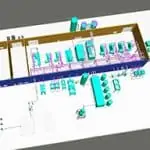
SCS is receiving the Gold Business Achievement Award for a Large Environmental Firm, for outstanding business performance in 2019. We largely attribute our organic growth to our clients interested in Sustainable Materials Management (SMM) and renewable natural gas (RNG) services. Our SMM programs increase our clients’ solid waste management efficiencies, reduce waste, and support sustainable recycling, and our design and design/build facilities convert landfill gas, dairy digester gas, and wastewater treatment plant digester gas to RNG. In addition, SCS’s Geographic & Practice Area Expansion initiative in 2019 enables us to expand our professional engineering and consulting services for liquids management, wastewater treatment, and emerging contaminants from new offices in the South, Central, and Midwest regions of the United States.
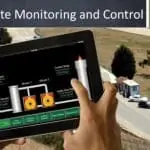
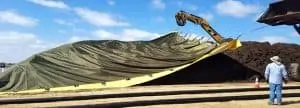
The Environmental Services Division of the city of San Diego, in collaboration with SCS Engineers, is receiving the Composting Project Merit Award in recognition for the composting operation at the Miramar Landfill in San Diego. In collaboration with the City, SCS designed an innovative covered Aerated Static Pile (ASP) composting system that will divert 100,000 tons per year of organic waste from the landfill. The ASP became operational in August 2019 and will compost 40,000 tons per year into useful by-products (and has capacity for an additional 20,000 tons). It provides an enhanced stormwater control system, and will eventually run on renewable energy generated from the landfill. According to the StopWaste.com calculator, the upgrade reduces greenhouse gas emissions by the equivalent of removing 19,015 cars from the road.
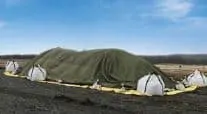
In addition, the recent announcement of SCS’s ASP Composting Pilot Program is making headlines. SCS owns a covered ASP compost system that is mobile and can be set-up on sites within an area of 50 feet by 100 feet, or less. In the covered ASP compost system, process and odor control is pro-active with a shorter composting period. Pilot tests allow waste managers to assess composting and to see if it is the right fit for their situation. The ASP system processes material batches in two months. Additional batches or “recipes” can test in 2-month intervals.
“Managing air, water, and soil pollution prevention are driving state and local regulations,” said Bob Gardner, a Senior Vice President of SCS Engineers. “Offsetting as much of the cost by improving operations, lowering energy consumption, and switching to renewable energy resources is critical to our clients.”
About SCS Engineers
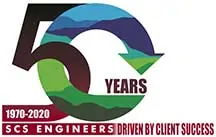 SCS, an employee-owned environmental consulting and construction firm, is celebrating our 50th year in business. We are producing technologies and programs that lower industrial operating costs and reduce greenhouse gases for private and public clients who are establishing goals to reduce their environmental impact.
SCS, an employee-owned environmental consulting and construction firm, is celebrating our 50th year in business. We are producing technologies and programs that lower industrial operating costs and reduce greenhouse gases for private and public clients who are establishing goals to reduce their environmental impact.
Our technologies and programs are finding footholds in the agricultural, industrial, and manufacturing sectors as municipalities and companies aim to reach climate change goals without passing all of the expense to consumers. SCS clients entrust us with the management of more than 35 million metric tons of anthropogenic CO2e greenhouse gases every year. We collect and beneficially use or destroy enough to offset greenhouse gas emissions from 7.4 million passenger cars annually.
A USDA study finds 21 percent of food purchased in the U.S. goes uneaten.
In the United States, 31 percent—or 133 billion pounds—of the 430 billion pounds of the available food supply at the retail and consumer levels in 2010 went uneaten. Retail-level losses represented 10 percent (43 billion pounds) and consumer-level losses 21 percent (90 billion pounds) of the available food supply.
“We’re excited to have SCS Engineers design a food waste prevention program that the individual cities will be able to bring to our residents,” said Lori Topley, Solid Waste Program Manager for the City of Mountain View. “Reducing food waste was recently identified by Project Drawdown (drawdown.org) as one of the top five solutions to reverse global warming.”
Senate Bill-1383 is California legislation establishing aggressive organics recycling targets. Other states are establishing their own goals, some with enforcement components. It is up to municipalities to secure processing capacity and to implement comprehensive organics diversion programs to meet these goals.
Tracie Onstad Bills and Lisa Coelho, both with SCS Engineers, explain how one solid waste authority known as RecycleSmart, is proactively seeking to tackle the tough questions pertaining to new regulation compliance. RecycleSmart’s stance is proactive, they began to research and review their organics programs last year and have been working simultaneously during the formation of the regulations. By doing so, they have given themselves time to establish a direction for compliance and time to provide the public outreach and education necessary for a smooth transition.
Read “Shifting Focus,” an article published in Waste Today detailing the Central Contra Costa Solid Waste Authority’s study and six integrated programs that will provide the direction they need to help six Northern California municipalities make the right infrastructure and programmatic investments to attain the goals.
Learn more about Organics Management and Integrated Solid Waste Management.
Tracie Onstad Bills and Lisa Coelho are the Northern California director and sustainable materials management specialist, respectively, for SCS Engineers. Please feel free to contact us if you have comments or questions about organics program planning and management at .
Many schools and school districts are prioritizing a shift toward zero waste and sustainability. However, learning to manage material resources on-site in a more sustainable manner presents operational and monetary challenges. Learn the benefits and steps to plan a financially sustainable program from Tracie Bills of SCS Engineers.
Tracie creates realistic approaches which allow for flexibility while maneuvering the unique challenges that occur. She takes you step-by-step through building a successful program and refers to established efforts such as in the City of San Jose that already have established zero waste programs in their schools.
Read the article by clicking here.
Pat Sullivan discusses two case studies that provide examples of two different approaches to odor management. The proactive approach resulted in a more positive outcome than the reactive approach. Although the odor issues never go away completely, the proactive facility has avoided lawsuits and regulatory enforcement and continues to have a positive working relationship with the community.
SCS Engineers freely shares our articles and white papers without imposing on your privacy.
Click to read Part I of this two part series. We’ll let you know when Part II is published soon.
Tracie Onstad Bills discussed how to sort through policy, program, and infrastructure to focus on the tools and concepts most useful in the thoughtful planning and preparation for organics service.
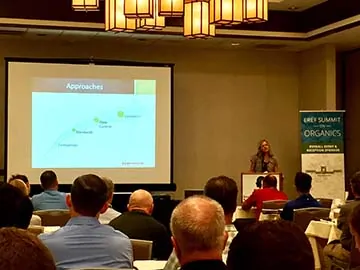
Sustainable Services Nationwide
Increased separation and segregation correlate to additional space needs in transfer stations. Given the move to automation in solid waste collections, it is reasonable to assume that the processing of MSW is going to move toward automation as well.
In his most recent article, Mike Kalish discusses some of the key considerations for the development, or redevelopment of transfer stations today.
Mike Kalish, P.E., LEED AP, is a Vice President of SCS Engineers and SCS’s National Expert on Transfer Stations. He has been the Project Manager for major transfer station renovations and expansions in several states.
By following the simple procedures governing selective routing in the commercial space, it is possible to turn a high disposal garbage collection system into a high diversion recycling system, without incurring additional costs or losing collection revenue. Read more…
Tracie Onstad Bills of SCS Engineers and Richard Gertman of For Sustainability Too explain the steps for commercial-stream routing and management of commercial recyclables with remarkable results in their Resource Recycling article published in June 2016.
Questions? Ask Tracie, she writes a blog series about recycling.